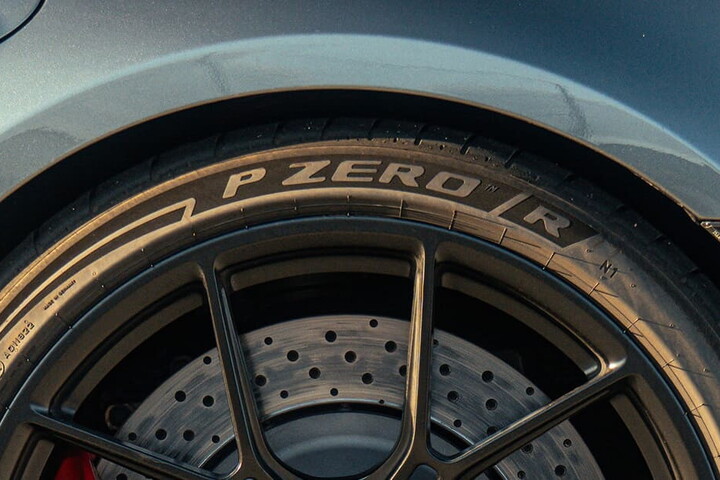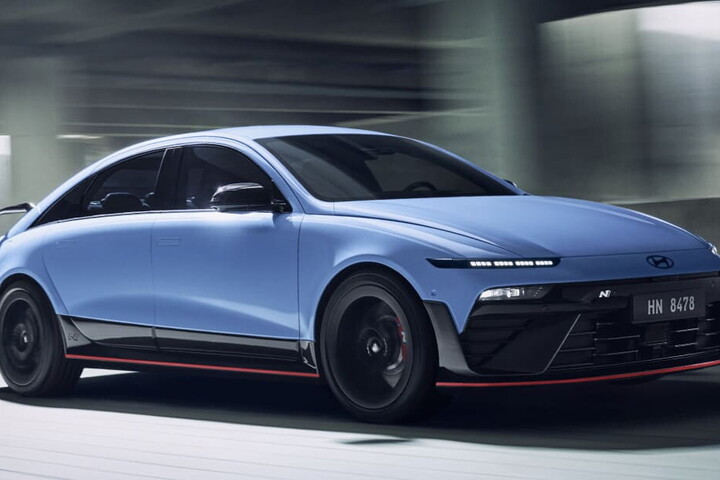It is the 1960s. In Casilda, in deepest Argentina, in the house of a baker father and a painter mother, by chance a boy comes across the legendary magazine Selezione. The subject of the article that attracts the boy's attention is Leonardo da Vinci, or rather his thoughts on an issue at the heart of all his work: can art and science coexist? They must, says the article, in the magazine's accessible and engaging style, through the achievements of the Great Tuscan. “It was a revelation," says the man who was once that boy. Since leaving the prairies of his home country he has come a long way, as have those few dozen people fortunate enough to drive his precious cars. That boy was Horacio Pagani. And like a character in one of the books of his compatriot Borges, in that random encounter with an idea larger than himself, he sees the beginning of his personal and professional life as a creator of unique vehicles and a relentless seeker of quality. In life, and in his products. "From that moment I was never bothered about studying in order to get a degree, but rather to get to know myself. I studied aspects of engineering, philosophy and art and I started working at the age of 18 in a small space - half studio and half workshop - in the small town where I was born and where I lived until 1983, when I moved to Italy with my wife Cristina, who was 19 years old."

In search of quality. Which is one of the hardest things to explain, admits Pagani. "For me - he confides - quality is a philosophy, but also a way of thinking, a way of being, of living...." The concept that has always guided the Argentine manufacturer in his profession is one that combines art, as a celebration and synthesis of aesthetic aspects, with innovation. Pagani applies this idea to the construction of his cars, models that combine stylistic beauty with outstanding performance and production quality. "I have loved art and science since childhood - he recalls - even though in my house there was no artistic or scientific tradition."
Thanks to the Formula 1 champion Juan Manuel Fangio - who understood how much he loved cars and engines - he was taken on by Lamborghini as a blue-collar worker. In the factory he applied the thinking of Philip Crosby, the American ideologue and former head of the ITT Corporation, and his belief that quality is achieved by setting up a system of prevention, not inspection, because doing things right the first time costs less whereas inspecting afterwards is simply a cost. So, according to Crosby, quality should be built into the start of the process, not tested at the end. Later, the arrival of ISO standards helped improve standards of quality, by applying specific procedures within companies. But according to Pagani that is not enough: "Because there will always be defects - he claims - they are a part of life. And anyone who produces anything will always have to deal with defects. That's why in my company we have tried to go beyond ISO standards." Laws, rules and regulations can oblige you to follow the right steps in a production process, but such systems, according to Pagani, will always miss the most important aspect of quality: "That it should be the company's philosophy. That's where quality is born and bred."
"Because "values", real values, go beyond manuals and obligatory steps in a process. Inside a plant, an office or a factory, the real values are the people and the contribution that each of them can make to the creation of the product, from the office cleaners to the quality manager." For Pagani, achieving quality depends on getting everyone involved. "In my company the word "boss" is no longer used, we are all just colleagues, plain and simple. And if I respect a colleague on my team, our understanding creates a positive energy that automatically transmits itself to whatever we are doing." Does quality at work always lead to quality of life? "Yes, if you apply the same philosophy to each, but we must always be able to separate the two, our private and professional lives. For me quality of life is being with my family, my wife, our two children, and the dog; it's taking a walk in the countryside or reading a book."
But it's not always easy to go to work with a smile on one's lips, or to feel the same way in the office as one does at home. He insists: "For me, quality is partly the philosophy that the company is able to convey to its employees, which results in teamwork, stimulus and mutual respect, something that is very difficult for us Latin types. Argentinians, Italians and Spaniards are creative and imaginative but also, unfortunately, very egocentric and insincere, character traits that are a hindrance when a quality system is based on interpersonal relationships. If people lack humility and an awareness of their limitations, it's difficult to create a good team. At Pagani Automobile, we have great technicians who are also great artists and great "humble" men, who are used to following my quality methodology in every action and every thought." And to remind them, Pagani always recounts a story from the Bible: "The one where King Solomon, when asked what to do to become wise, answers: ‘The first thing you need to do is realise how ignorant you are.'" There is one last thing Pagani believes those in search of quality must possess: "Passion and love for what you are doing. But I took that for granted."




